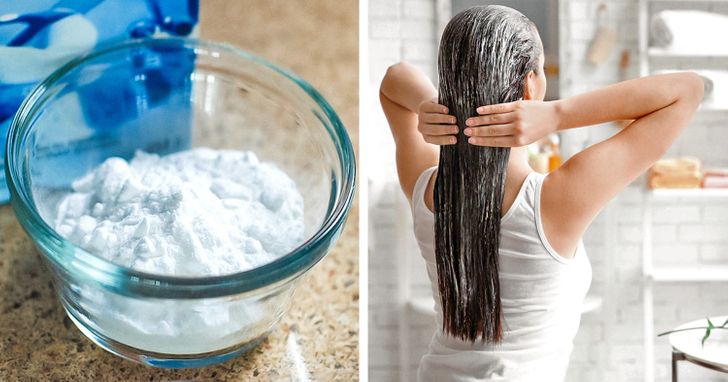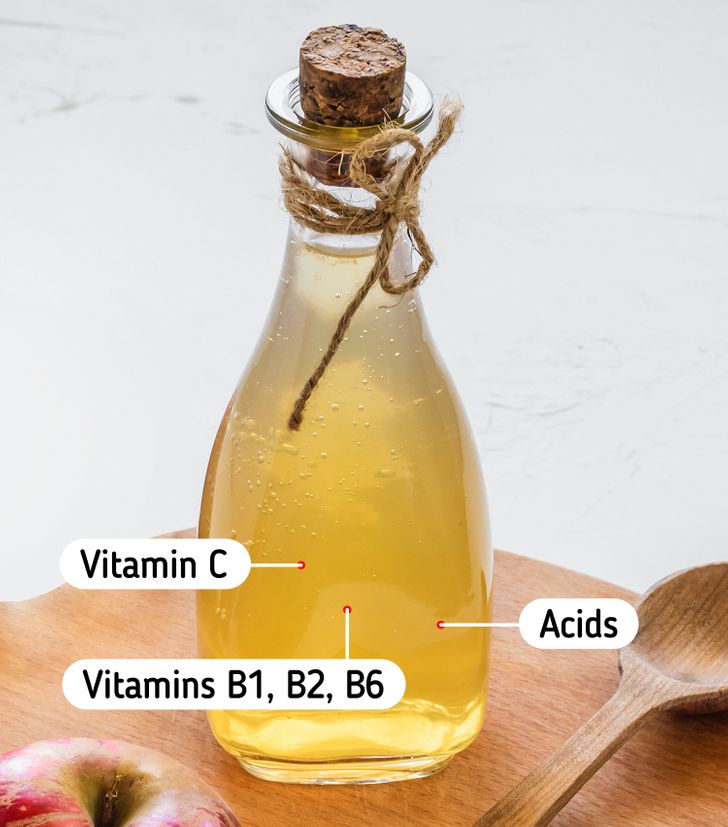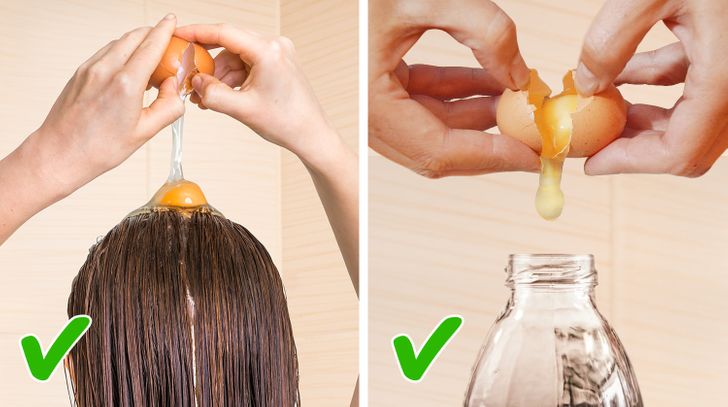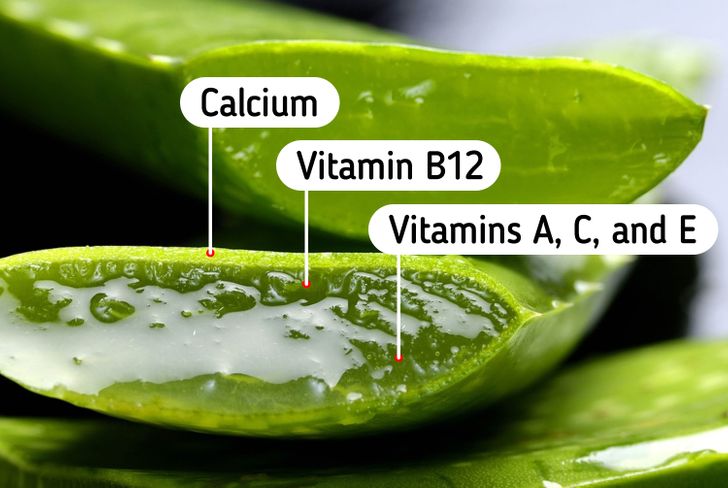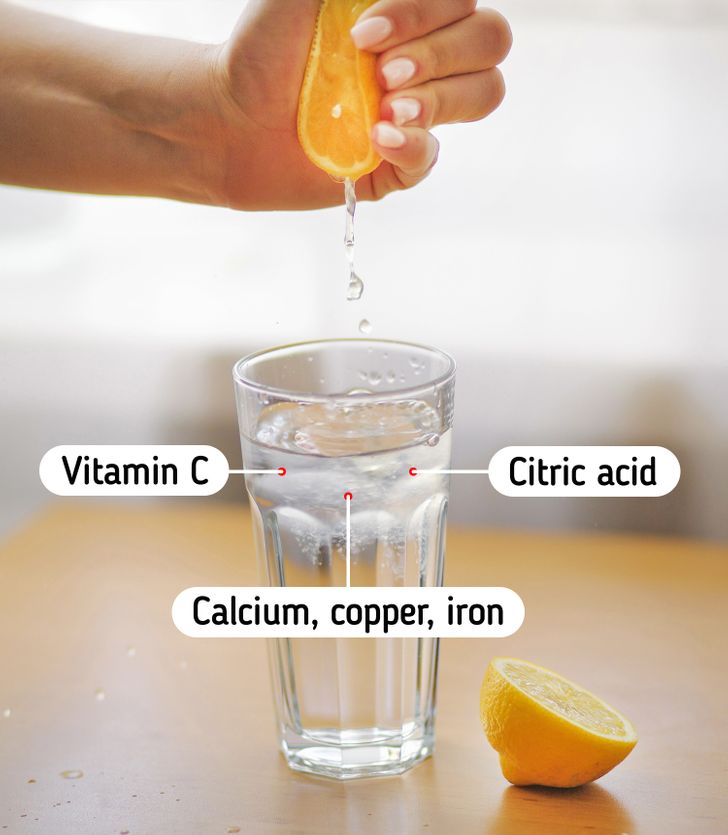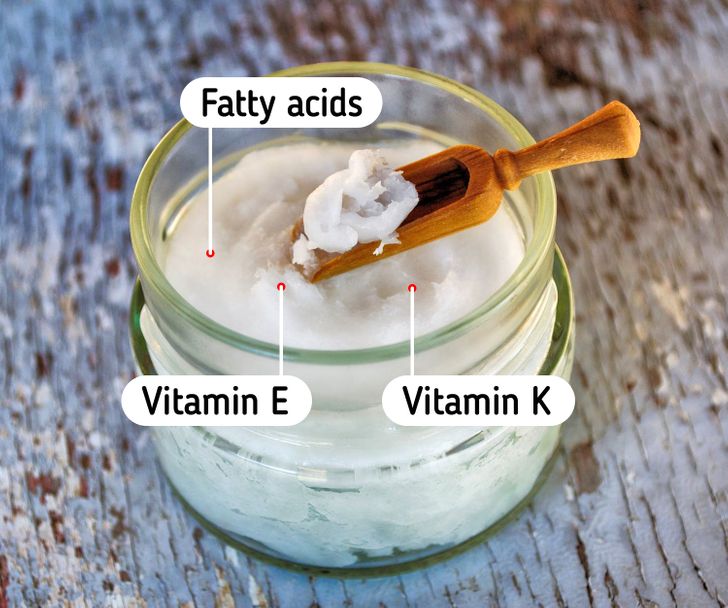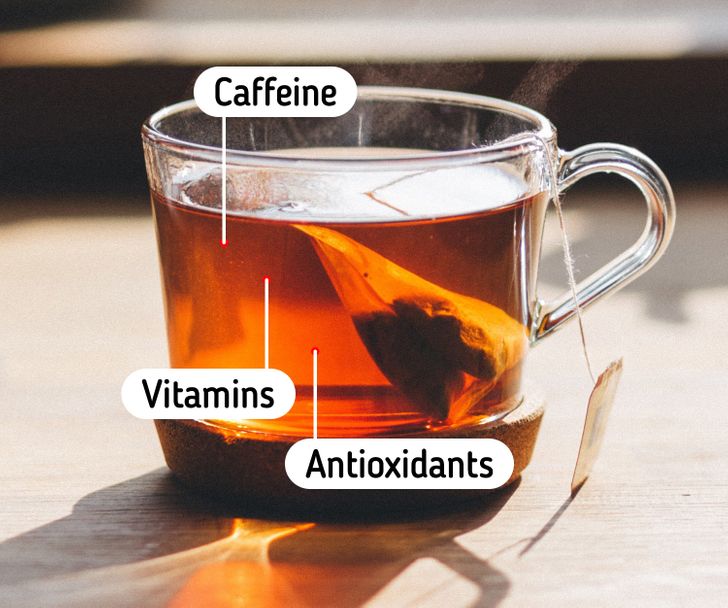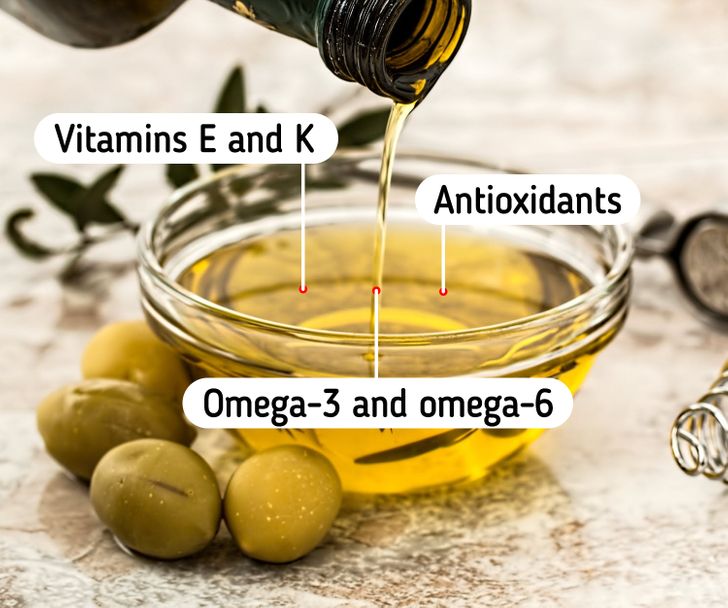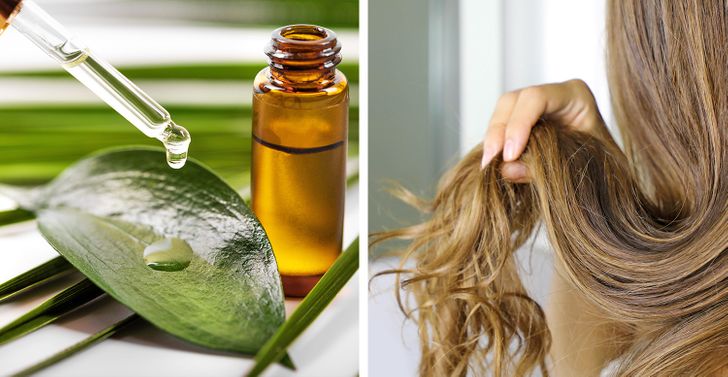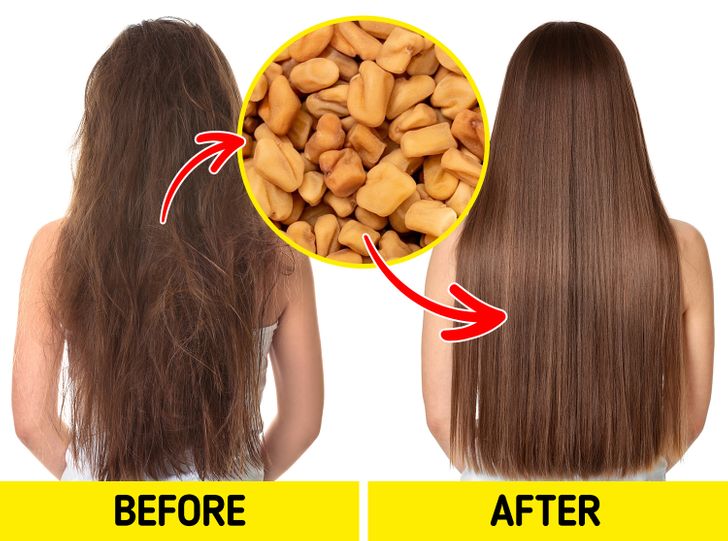eggs+greek yogurt+honey and you're welcome ;)
10 Shampoo Alternatives You can Find Right in Your Pantry
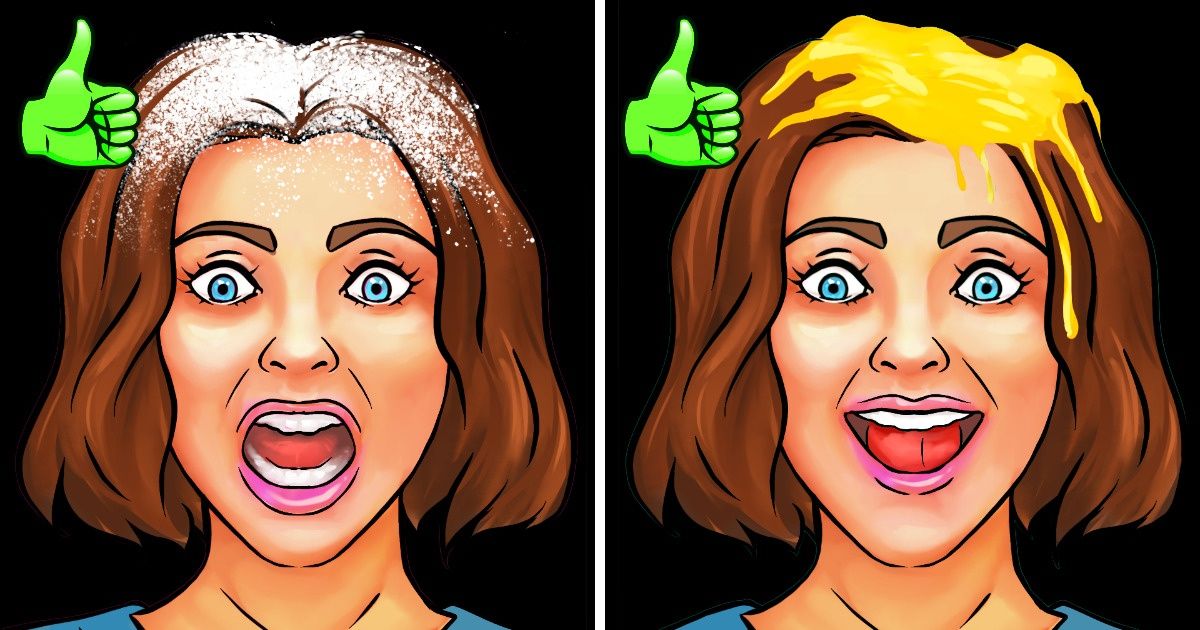
Shampoo didn’t become a standard on our bathroom shelves until the 20th century. Before that, people relied on good-old soap, made of different natural cleansers. Unfortunately, soap doesn’t work well in the mineral-heavy water that we use. Yet, shampoo has a lot of weighty disadvantages that often make us look for better options.
Bright Side advocates for a healthier lifestyle and believes we can improve our daily life with little changes, like switching from shampoo to its alternatives. Read about why we should make this switch in the bonus at the end of the article.
1. Baking soda
At first, you might find this tip to be a little jarring. Baking soda in your hair? Don’t worry, baking soda is actually a natural exfoliant, which means it can remove dead skin cells and dirt, reduce excess oil, and help rid your scalp of scaliness and itching. All in all, it gently detoxes your hair.
- Recipe: Use 1 tablespoon of baking soda for 1 cup of water. Thick and curly hair may need more soda, while thin and dry hair may need less. Pour it into the bottle and shake until the soda dissolves. Squeeze the mixture onto your wet hair and rub it in, starting at the roots.
2. Apple cider vinegar
Due to apple cider vinegar’s acidity, it slows down the growth of yeast that often leads to hair loss. It also provides essential minerals and vitamins to support shine, strength, and smoothness, helps to maintain hair color, and adjusts the hair’s pH balance.
- Recipe: Mix a tablespoon of apple cider vinegar with a cup of water in a bottle and shake it. Pour it onto your hair after you’ve washed it, and then rinse it thoroughly.
3. Egg yolk
Cracking eggs on the head sounds borderline insane, doesn’t it? Yet eggs are full of protein and vitamins that your hair will totally love. Eggs act as a surfactant, getting the dirt out along the length of your hair. It also works as a conditioner for dry hair. Overall, it will leave your hair soft, clean, and shiny.
- Recipe: Beat an egg in a bottle by shaking it. Get in the shower and pour the entire egg on your wet hair. Leave it on for 1-3 minutes and then wash it off with cool water.
4. Aloe vera
Do you know how much bacteria and fungi live on your scalp? Well, luckily for us, aloe vera has a lot of anti-bacterial properties in its makeup. It can break down dead skin cells and its anti-inflammatory effect makes aloe an excellent cure for dandruff. It also strips our hair of extra oil, hydrates our skin, strengthens and heals our strands, and promotes hair growth.
5. Lemon juice
Lemon is a nutritional powerhouse and one of the cheapest and easiest alternatives to shampoo. The citric acid in the lemon has anti-microbial properties, and due to its pH adjuster, it makes it a great cleanser, especially for dandruff-ridden hair. It can also work as a natural lightener.
- Recipe: Squeeze 1 tablespoon of lemon juice into 2 cups of water and shake it. Pour the mixture onto your hair, massage it in for 2-3 minutes, then wash it off.
6. Coconut oil
Coconut oil is a true multitasker among natural beauty products and is used for literally everything, from removing makeup to serving as sun protection. Packed with vitamins, it stimulates hair growth, saves it from dryness, and protects you from negative environmental influences. It also prevents hair loss and comes in handy when treating dandruff.
- Recipe: Apply coconut oil at night to the dry hair, making sure that every strand is covered, then wrap it with a towel and allow it to sit for 20-30 minutes.
7. Tea
This may sound weird, but next time you boil water to make yourself a nice cup of tea, make one for your hair too. Thanks to the caffeine, tea prompts blood flow, skin hydration, and oxygen delivery in your body — and all these things directly improve hair growth and prevent hair loss!
- Recipe: Brew a pot of tea, let it cool, and pour it onto your head (make sure it’s no longer hot).
8. Olive oil
Rich in nutrients, olive oil possesses a lot of softening qualities and works as a great natural moisturizer, making hair soft, resilient, and healthy. Oil soothes the outer hair layers, imparting its trademark shine. It’s the most beneficial for processed, thick, dry hair and split ends.
- Recipe: The amount you need depends on your hair length. Short hair requires no more than a tablespoon of warm olive oil, while longer hair may need up to 1/4 of a cup. Rub it into your scalp for 15 minutes, then rinse.
9. Tea tree oil
This is yet another oil that fights bacteria and heals inflammation. It’s been used to remedy skin problems for centuries, including dandruff. So naturally, it makes an amazing anti-dandruff shampoo. It removes dead cells, extra oil, and the leftovers of other products. It also cleanses your pores, helping your skin to breathe.
10. Fenugreek seeds
Fenugreek seeds are a rich source of vitamins, proteins, and acids that are essential in encouraging hair growth. They also fight bacteria and fungi and are quite effective at reducing hair loss. Even more than that, they’re used to treat conditions that lead to dry, irritated skin, like dandruff.
- Recipe: Soak the seeds overnight. Grind up 1-2 tablespoons of seeds and pour 2 cups of hot water into the powder. As a result, you should have a slimy substance. Massage it into your hair and leave it there for 20 minutes, then rinse.
Bonus: Why not use shampoo
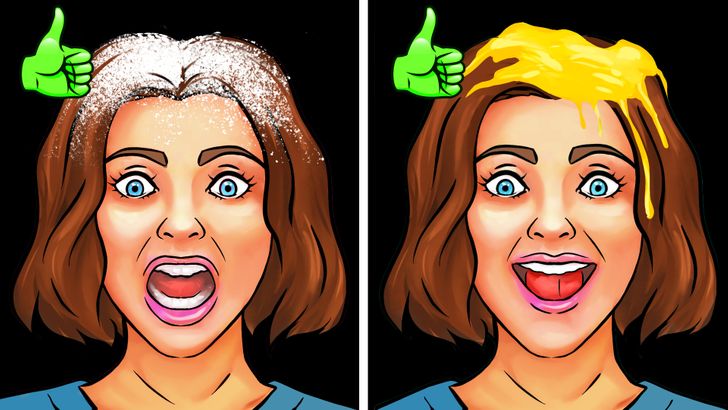
- Our bodies, including our scalps, naturally produce healthy oils that protect our hair and skin, keeping things moist, strong, and soft. Shampoos contain detergents, just like in laundry and dishwashing products, and they can strip our hair of these oils, leaving behind dryness, itchiness, and dandruff.
-
Shampoos contain chemicals, including sulfates and mineral oil, which are not skin-friendly and are also a byproduct of distilled gasoline. It doesn’t absorb into the skin, so it coats our scalp, locking in oils while grease and dirt pile up on top of it. As a result, it requires more shampoo to wash it all away. So, the more shampoo you use, the more you’ll need.
-
Considering the previous point, shampoo creates a need for other hair products. We need a conditioner to combat the shampoo’s stripping of natural oils. There’s an endless list of hair masks, waxes, gels, and detanglers to help fix the shampoo’s aftereffects.
How often do you wash your hair? What products do you use?
Comments
i use liven D shampoo,is it safe?
Related Reads
20 Treasures From the Past People Stumbled Upon by Sheer Accident

Tattoos Turn Scars That People Don’t Want to Hide Anymore Into Art
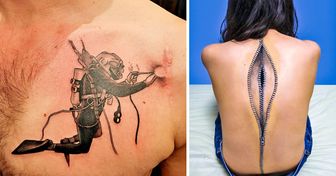
15 Pics That Prove Some People Were Born to Make Us Laugh
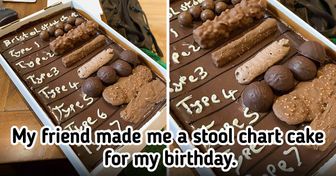
10+ Tricks Manufacturers Use to Fool Their Customers
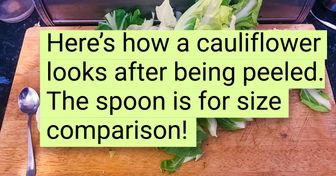
12 Life Moments Where Quiet Kindness Played the Main Role

My Parents Wanted a ‘Family Vacation’ on My Budget—I Made One Move They Didn’t Expect

I Tried to Be the Perfect Stepmom — but My Husband Just Made Me Feel Worthless

I Refused to Give Up My Baby, So My Mom Exposed a Terrible Secret

I Kicked My Parents Out of My Graduation—They Didn’t Contribute to My Education

My Dad Demanded to Give My Stepsister the Spotlight on My Wedding—But I Reclaimed It

18 People Who Found Out That Small Acts of Kindness Are the Pathway to Happiness

12 Real-Life Betrayals That Sound Like Movie Plots

